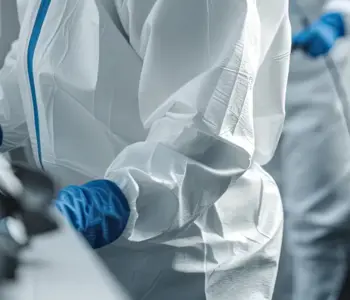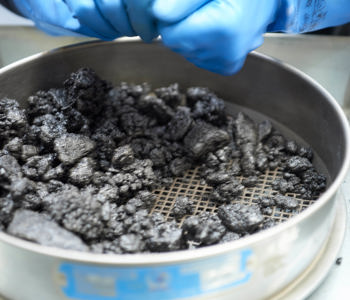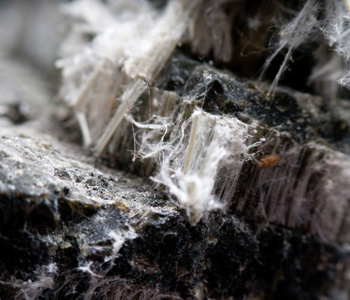Why Concrete Testing?
Fresh concrete testing is essential for ensuring the quality and performance of concrete in construction projects. By understanding the mechanical and physical properties of a concrete mix, we can assess its workability, stability, and strength once hardened. This information is key to determining the concrete’s suitability for its intended application.
In-place concrete can also be tested for long-term strength and durability by evaluating factors such as compressive strength, tensile strength, and elasticity. This helps to confirm the quality of used materials, prove compliance with contract specifications, and predict how the concrete will perform under different conditions and over time.
* For a full list of our UKAS-accredited activities, please visit our Accreditations and Industry Standards

Our Concrete Testing Services
At CTS, our multi-accredited team offers a comprehensive range of concrete testing services for both fresh and hardened concrete. The primary criterion of concrete testing is to assess the crushing strength of concrete cubes, beams, and cylinders. We can also test individual components, such as cement, aggregates, and water.
Alongside strength investigations of concrete test cubes, beams, and cylinders, we also perform temperature maturity and equivalent age comparisons to determine the early-age strength of concrete. This enables us to monitor the early-age strength of in-place concrete, facilitating project progression at the earliest possible stage while ensuring maximum safety and quality.
To ensure accurate results, concrete test samples must be produced correctly, in accordance with British Standards, and by trained personnel. By utilising CTS’s skilled technicians and reliable concrete testing services, our clients can be confident that their concrete mix meets industry standards and that the results are delivered per accredited quality standards.

Understanding the properties of fresh concrete is essential for ensuring that the mix used to support heavy loads over long periods is tested for sufficient strength and durability.
Fresh Concrete Testing |
Methodology |
|
Determination Of Slump |
BS EN 12350-2 |
|
Determination Of Flow |
BS EN 12350-5 |
|
Determination Of Compacting Factor |
BS EN 1881-103 |
|
Determination Of Air Content |
BS EN 12350-7 |
|
Degree Of Compactibility |
BS EN 12350-4 |
|
Bauer Filtration Test |
In-house method |
|
Determination Of Bleeding Rate Of Concrete |
ASTM C232 |
|
Column Segregation Resistance |
ASTM C1610 |
|
Fibre Content (Fresh Sample) |
BS EN 14488-7 & BS EN 14721 |
|
V Funnel |
BS EN 12350-9 |
|
L-Box Testing |
BS EN 12350-10 |
|
Sieve Segregation |
BS EN 12350-11 |
|
J Ring Testing |
BS EN 12350-12 |
|
Slump Flow, T500 And Visibility Stability Index (VSI) |
BS EN 12350-8 |
|
Static Segregation Using Column Technique |
ASTM C1610 |
Physical, mechanical, and chemical tests on hardened concrete help to verify compliance with contract specifications and the quality of the materials used.
Hardened Concrete Testing |
Methodology |
| Compressive Strength Of Concrete Cubes | BS EN 12390-3 |
| Compressive Strength Of Concrete Cylinders | BS EN 12390-3 |
| Flexural Strength Of Concrete Beams | BS EN 12390-5 |
| Tensile Strength Of Concrete Cylinders | BS EN 12390-6 |
| Compressive Strength Of Concrete Cores | BS EN 12504-1 |
| Residual Flexural Strength Of Concrete Beams | BS EN 14651 & BS EN 14488 |
| Barcelona Test | In-house method |
| Fibre Content (Hardened Sample) | BS EN 14488-7 |
| Hardened Specimen Visual Stability Index (Hvsi) | In-house method |
| Abrasion Resistance | BS EN 13892-4 |
Additional Concrete Testing Services
In addition to the above services, our expert team of technicians and engineers can carry out a full suite of complementary concrete tests, including:
- Concrete maturity (early-age strength determination)
- 3m beam concrete pavements (MOT Straight Edge Assessment)
- Macro texture (concrete)
- Water penetration in concrete
- Water absorption in concrete
- Crack monitoring
- Freeze thaw (hardened concrete)
- Determination of secant modulus of elasticity
- Drying shrinkage
- Collection of sprayed concrete panels & beam cutting
- Determination of mix proportions & cement content
- Pendulum test (slip / skid)
- Pull-out testing
- Rebar scanning
- Schmidt hammer surveys
- Structural investigation surveys
- Pavement investigation surveys
- Supply data logging temperature equipment
Concrete testing services from CTS help to assure compliance with all technical and quality aspects throughout a structure’s life.
- Pre-construction – to understand the concrete composition and its ability to deliver the requirements of the design and comply with specifications.
- During construction – to assess the acceptability of the fresh state of concrete and ensure compliance with the hardened state strength requirements.
- Post-construction – to investigate potential failure in concrete, including non-destructive testing, surveying, and routine checking.
Why Choose CTS for Concrete Testing?
Whether evaluating new mix designs, testing for compliance, assessing the condition of in-situ concrete, or investigating reasons for failure, CTS offers a full range of on-site and off-site tests. Our continued investment in process and technology enables us to offer a rapid turnaround for many of our laboratory tests.
To find out more about our concrete testing services, please get in touch with a member of the CTS team today. We’ll be more than happy to answer any questions you may have regarding our services and how we can help you.
Request a Quote
Frequently Asked Questions: Concrete Testing
What is the concrete cube test method?
A concrete cube test is where a hardened concrete test cube sample, generally 100mm square, is crushed in a hydraulic machine. An increasing load is applied to the cube until it is destroyed, providing a compressive strength value measured in Newtons per millimetres squared (N/mm2).
What is the importance of concrete cube testing?
Concrete cube testing is a type of concrete testing method, whereby an increasing load is applied to concrete test cubes until they break. These tests are essential for verifying the crushing strength of concrete to ensure the proposed mix meets design load requirements.
How is a concrete core test done for concrete?
A concrete core is a concrete cylinder extracted from in-place concrete, which is then tested in a laboratory. First, the core is prepared to ensure the ends are flat and perpendicular to the core’s longitudinal axis. The concrete core is then placed in a hydraulic crushing machine to undergo a steadily increasing load until it reaches its ultimate compressive strength.
What is a concrete slump test in concrete?
The concrete slump test is a common concrete testing method used to measure the consistency of fresh concrete before it sets. This is crucial for evaluating how much water has been used in the concrete mix, its ability to flow, and if it is suitable for its intended use.








